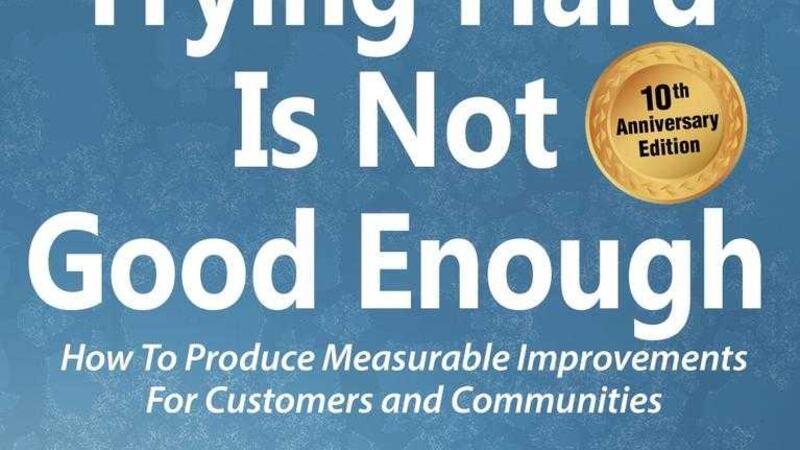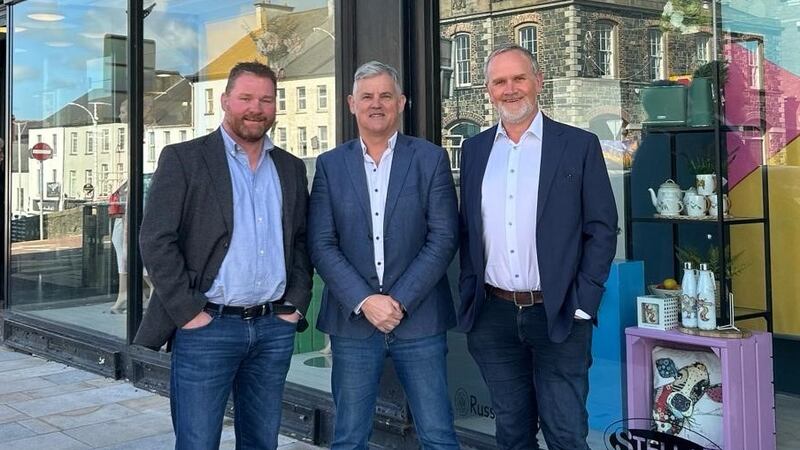TH Executive's newly-published draft Programme for Government (PfG) framework sets out the broad direction in which it would like to move our country.
And it's understandable that, perhaps with a precursory glance at the document, some people might be tempted to interpret it as a long and broad wish list that is not sufficiently backed up with concrete targets and plans.
But a deeper consideration of this document is really necessary if it is to be properly assessed.
In previous columns I have talked about how economic output (measured by GDP) is a poor indicator of economic progress. When it comes to ‘how well off we really are’ in Northern Ireland there are a number of 'quality of life' indicators that impact people’s lives more than GDP growth.
So, for example, we feel better off when we feel safe in our neighbourhoods, when our children excel in school, when we are healthy and when we see examples of mutual respect and integration across society. Basically, we feel better off when we see social as well as economic progress.
This latest PfG is different from previous programmes in that it is focused on ‘strategic outcomes’ in 14 particular areas. These include things like: people working in better jobs, a more equal society, having a safe community, high quality public services, giving our children the best start in life and improving the lives of people with disabilities. Specifically, policy makers will be monitoring the progress that we as a society make in all these areas (and maybe some more depending on the feedback).
Interestingly, this PfG recognises that the responsibility for delivering improvement will not necessarily reside with a specific government department. All government departments will share the challenge of delivering these outcomes but so too will industry, local councils, trade unions, communities and society as a whole.
Collaboration will be key for the success of this PfG. For example, if we are to take a step back and think about who can help us achieve longer, healthier lives for citizens, it is not just the Department of Health. The Department of Education can increase children’s knowledge on nutrition, can ensure they eat well during school time and give them the opportunity to exercise and enjoy sport.
Private companies can encourage employees to eat well, be active and attend health checks. People themselves can adopt professional advice on nutrition and exercise, they can quit smoking and support family members to do the same. The reality for the Executive is this: if people are negligent with their own health, no amount of money in the Department of Health’s budget will be able to turn back the clock for them and undo the damage.
So, as communities and private citizens we need to accept that our behaviour and choices will affect our quality of life. We cannot hold one department responsible for producing population level change.
The Executive’s new focus for the PfG has been inspired by a book by Mark Friedman which is entitled 'Trying Hard Is Not Good Enough'. He claims the book is all about getting 'from talk to action quickly' and is about making a difference, not just trying hard and hoping for the best. My interpretation of the book, although I have to admit to giving it a skim rather that an in-depth read, is that it sets out a formula (of sorts) for improving outcomes in areas related to public services.
This book encourages leaders and policy-makers to look at the outcomes that they want to achieve. But in order to move to a better place (achieve that outcome), we have to accurately assess where we are now – ie establish the baseline.
For example, our desired outcome might be a more R&D focused economy, so we have to look at current R&D levels in the economy. Different indicators will be used to set the baselines for each of the agreed outcomes.
But it doesn’t stop there. To improve our baseline we also have to seriously assess and research the reasons for our current baseline position. We need to be honest with ourselves about why we are under-performing in certain areas that we want to change. When we have established the reasons for under-performance, we tackle them through action plans. The Executive intends to draw up action plans for this Programme for Government in the months ahead and over the next number of the years they will regularly report on baseline progress (or regression).
This whole approach is very different from previous PfGs. I like it and I think it is appropriate for improving our well-being. Admittedly, there is probably still a bit of polishing to do around the proposed indicators, but the general gist is the right one.
But one worry I do have is that in Northern Ireland we have a habit of avoiding the accurate story around why some of our current baselines are not where they should be. And unless we are going to be honest about what is contributing to a problem, then we cannot really fix it.
If we are to improve outcomes in terms of education or genuinely 'create a shared society that respects diversity', then we really have to talk about our segregated and elitist education system. Indeed we need to look that the entire education system - stop it from labelling children as failures from an early age and then prevent it from forcing children to make subject choices at the age of 14 that could severely limit their future careers.
The public have until July 22 to give their feedback on this document. My advice is to read the document, maybe even read Friedman’s book, think about it - and then have your say.
:: Angela McGowan is chief economist at Danske Bank in Northern Ireland
:: Next week: Richard Ramsey


